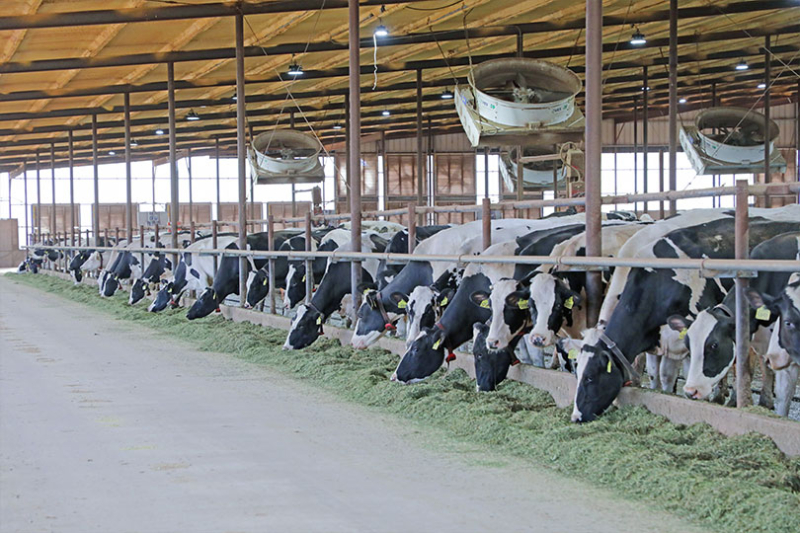By Jessica Domel
Multimedia Reporter
Although the expiration of the one-year extension of the 2018 Farm Bill will not yet impact farm bill safety net programs like Agriculture Risk Coverage (ARC) and Price Loss Coverage (PLC), we are moving closer to the deadline for another important commodity program—Dairy Margin Coverage (DMC).
DMC is the first of the commodity programs that will expire. It is a voluntary conservation program that helps dairy farmers offset price differences between milk and feed.
It is set to expire at the end of the year unless Congress passes another farm bill or extension.
“If this (farm bill discussions) were to drag into December without an extension—and Congress may choose not to do an extension in the near term to keep pressure on getting a farm bill done—the closer you get to January, you’re going to start hearing about the dairy cliff,” Dr. Bart Fischer, co-director of Texas A&M’s Agricultural and Food Policy Center, said. “Part of that is once the farm bill has expired, we go back to permanent law for dairy. That would mean implementing, essentially, price support loans. That would start kicking in presumably in early January.”
According to the American Farm Bureau Federation (AFBF), on Jan. 1, price support purchases of milk and honey will begin if there is not a new farm bill or an extension.
The all-milk price in July was $22.80 a hundredweight.
The parity price is $65.90.
Permanent law, which the dairy program moves back into Jan. 1, dictates the U.S. Department of Agriculture (USDA) should support July milk at 75% of the parity, which is $49.43 per hundredweight.
In the past, USDA has slow-walked rulemaking to implement purchases of dairy products, and a new farm bill was implemented before USDA began making purchases.
“Purchasing cheese, butter and nonfat dry milk at multiples of the market price would be severely disruptive to markets, would badly distort pricing under the federal milk marketing order system and would undermine demand at home and abroad in return for very uneven benefits to farmers over a limited time,” Roger Cryan, AFBF chief economist, wrote. “The release of USDA stocks when permanent law is suspended again would depress markets for months.”
Cryan noted the threat of moving to permanent law, and the implementation of the purchases, could send a strong message to Congress that action on a farm bill is needed.
Before Congress left Washington, D.C. for October, Senate Majority Leader Chuck Schumer (D-NY) spoke on the Senate floor about the importance of avoiding the dairy cliff.
“One of the consequences of failing to pass the farm bill is going over the so-called dairy cliff, which is what happens when the Dairy Margin Coverage program dries up. For this to happen will decimate farmers across the country,” Schumer said. “In my own state, farmers have told me some of them would go out of business if we went over that dairy cliff. Monthly payments that help farmers cover the gap between the price of milk and the feed would halt.”
Going over the dairy cliff would also affect consumers.
“The cost of milk could potentially double if we went over that dairy cliff. It would create seismic disruptions in our supply chains and cause market panic,” Schumer said.
To prevent that from happening, agricultural organizations like AFBF and Texas Farm Bureau (TFB) are urging Congress to pass a new, five-year farm bill before the end of the year.
The current one-year extension of the 2018 Farm Bill expired Sept. 30. A list of programs that expired with the farm bill is available here.
Congress is out of session until Nov. 12.


Leave A Comment